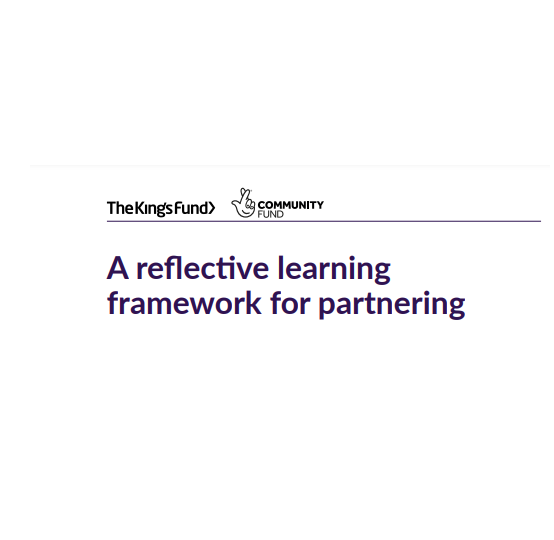My Team Around Me
My Team Around Me (MTAM) is an approach for working with people experiencing multiple disadvantage who need multi-agency support.
The approach is strengths-based and provides the client with a dedicated collaborative team to support their needs.
We act on the principle of “nothing about me without me” so the client chooses who is in the team: professionals and any other people they want involved. The MTAM coordinator facilitates ways of working based on partnerships and collaboration.
MTAM presents an opportunity for workers to join a cross-sector team of support around a client. Shared goals include:
Service continuity: professionals working across sectors commit to relational and service continuity through transitions.
Shared accountability: Learning together to do things differently through regular communication, shared safety and support planning.
Client-led, trauma-informed and strengths-based: building trusting relationships and working on strengths.
Innovative Practice: Working collectively to create new and flexible ways of working that may inform strategy and commissioning
If you’d like to talk to us about My Team Around Me, please drop Tom Dunn (our MTAM lead) an email: Thomas.Dunn@ChangingFuturesBristol.co.uk
Below are some resources that we find really helpful in relation to taking a MTAM approach, as well as some content from Changing Futures. Let us know what you think! And if you have something you’d like to share on this page then please get in touch.
-

MTAM Knowledge, Skills and Behaviours Framework
This framework provides a context for My Team Around Me: the aspirations, what it looks like in practice and the culture that can support this way of working.
The document offers a suggested list of knowledge, skills, and behaviours that can help people involved - from clients through to commissioners - to build a collaborative MTAM community of practice.
-

MTAM Collective Safety Planning Tool
A tool to support collaborative approaches towards safety and positive risk-taking with the goal of increasing engagement and reducing harm. The Safety Planning Tool puts the client’s voice in the foreground and ensuring everyone’s perspectives are included, empowering staff to use creative ways of working when needed.
-

MTAM Review Tool
The MTAM Review Tool (online) provides a reflective process to help understand whether a MTAM approach is being delivered for a client.
It prompts reflections on the four key objectives of MTAM (service continuity, shared accountability, client led and innovative practice) and provides a score to help you understand how a team is forming and functioning.
The tool can be used by anyone from any service who is keen to build a team around a client.
-

Strengths Meeting Toolkit
Strengths-based approaches focus on an individual’s resources, skills, qualities, achievements and successes rather than on deficits, problems or negative behaviours. MTAM delivers a strengths-based approach that can provide opportunities for both professionals and clients to see themselves and specific situations in a new light.
-

The Three Pillars
The Three Pillars offer a core framework to the MTAM approach. MTAM aims to support positive relationships between professionals and to enable organisations to work more collaboratively. When relationships and collaboration are in place then learning and change can occur through reflective processes.
-

Trauma Recovery Model
The Trauma Recovery Model is useful for understanding where a client might in their recovery journey. It can help us consider any expectations or assumptions that might be involved when building a team around an individual.
The model highlights the importance of early assertive engagement and relationship building. It can help a team with planning and sharing accountability, working towards more stability and giving a client ownership of their team.
-

The Power Threat Meaning Framework: Guided Discussion
This guided discussion from the British Psychological Society offers an accessible way of making sense of the complexity within people’s lives. The guided discussion invites collaboration and can help members of a MTAM team to form positive relationships with each other and support each other to hold a person-centred and trauma-informed position.
-

Adult safeguarding and homelessness
This briefing paper offers insight into shared system barriers, legal frameworks and effective practice for those experiencing multiple disadvantage within adult safeguarding. It offers guidelines on what the system can work towards to improve practice at all levels.
-

A reflective learning framework for partnering
This tool from The King’s Fund can be helpful for us – as practitioners and organisations – to reflect on how we are developing effective partnerships.
-

System Changers: 'From where I stand.'
This 2016 case study by Lankelly Chase describes how to generate change through collaborative multi-agency working, and explores how change can happen in the context of direct practice. It describes the foundation of the My Team Around Me approach.
-

Human Learning Systems
The Human Learning Systems website has a good bank of research and guidance for how to work more effectively and systematically within the health and social care systems.
-

The King's Fund
The King’s Fund website offers a large resource of reports and learning summaries, webinars and training opportunities. There are also useful resources about Integrated Care Systems and reports on system issues and methods of practice.
-

MTAM: interim evaluation of the launch and pilot phase
The purpose of this interim evaluation was to explore the pilot phase of MTAM (to April 2023). The document looks at what was achieved, what was a work-in-progress and what had not yet been achieved as intended. It highlights key learning and change and is being used to inform the next stage of MTAM.
